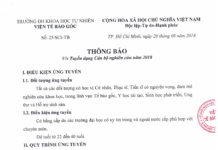2015, pp 113-123
Expanded Adipose Tissue-Derived Stem Cells for Articular Cartilage Injury Treatment: A Safety and Efficacy Evaluation
- Phuc Van Pham PhD,
- Khanh Hong Thien Bui MD, PhD,
- Dat Quoc Ngo MD, PhD,
- Thao Thi-Phuong Doan PhD,
- Ngoc Bich Vu,
- Nhung Hai Truong MSc,
- Dung Minh Le BS,
- Ngoc Kim Phan PhD
Abstract
Non-expanded adipose tissue-derived stem cells (ADSCs) are commonly used in preclinical and clinical articular cartilage injury treatment; however, there are usually insufficient non-expanded ADSCs for transplantation. This research aims to evaluate the safety and efficacy of expanded ADSC transplantation in a mouse model. The stromal vascular fraction from abdominal adipose tissue was subcultured for ten passages to enrich for and expand the number of ADSCs. The safety of expanded ADSCs was assessed by evaluating their “stemness” via ADSC-specific marker expression, the expression of two tumorigenesis-related genes (Oct–3/4 and Nanog) using real-time RT-PCR, and in vivo tumor formation in NOD/SCID mice. ADSC efficacy was determined by assessing their chondrocytic differentiative potential in vitro in cartilage-inducing medium as well as in vivo via injection into a NOD/SCID mice joint failure model. The results showed that expanded ADSCs were negative for Oct–3/4 and Nanog and did not induce tumor formation in mice. Furthermore, ADSCs differentiated into chondrocytes, both in vitro and in vivo, and enhanced the regeneration of articular cartilage in NOD/SCID mice as compared with the control. These results confirm that expanded ADSCs are safe and effective for the treatment of injured articular cartilage and offer a promising therapy for degenerative cartilaginous diseases.





